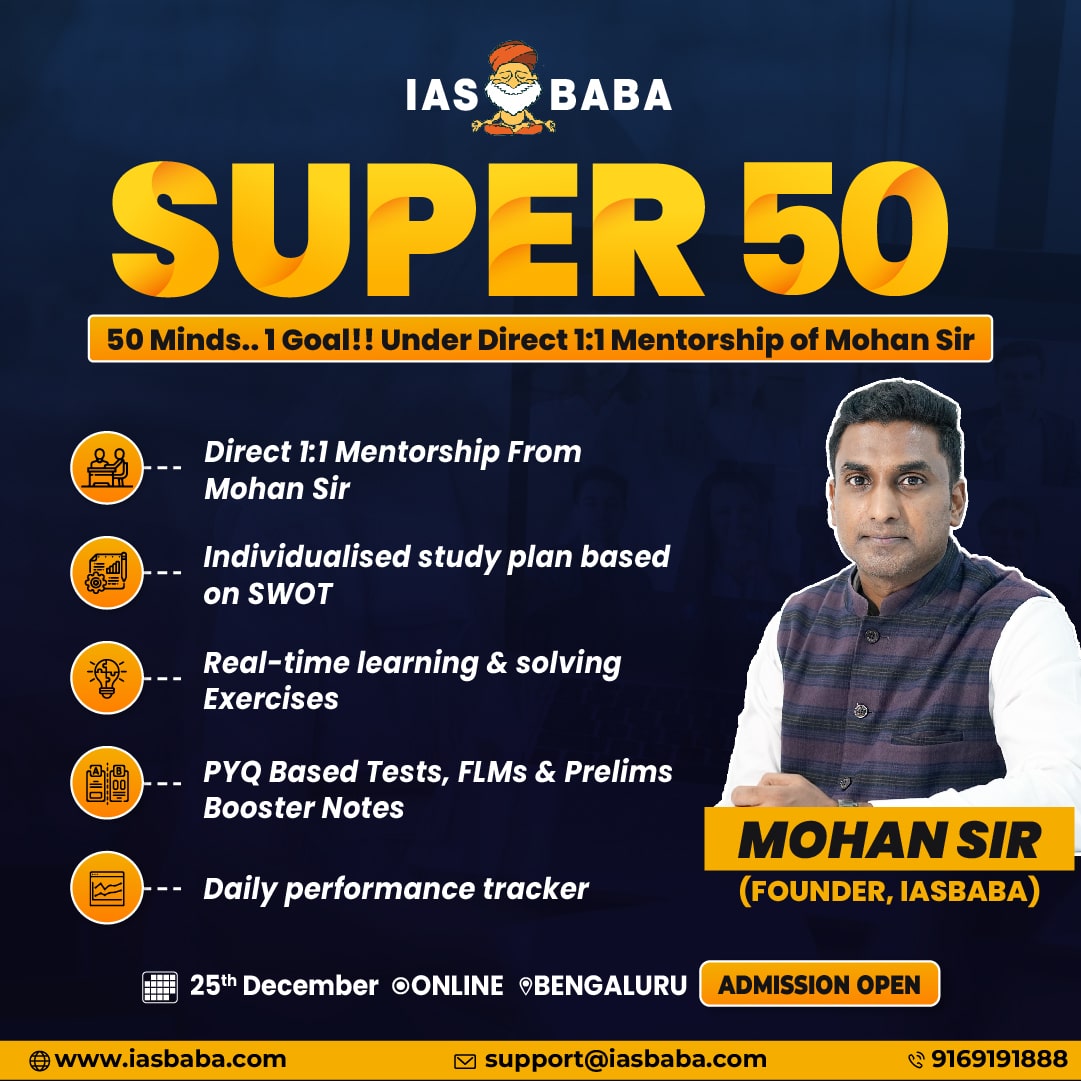IASbaba's Daily Current Affairs Analysis
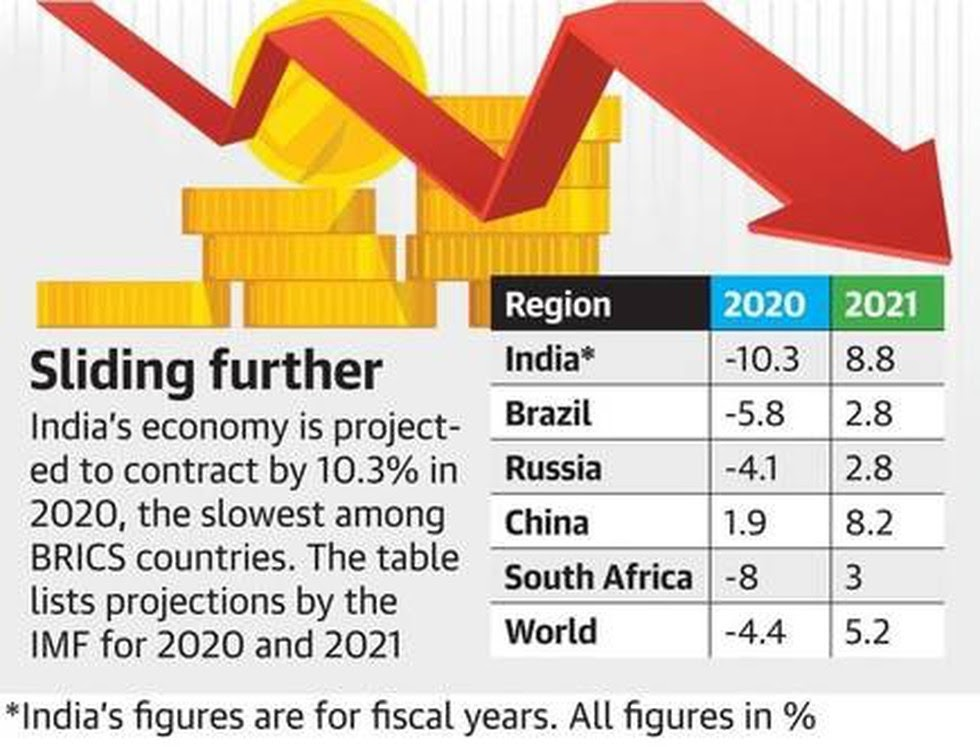
Archives
(PRELIMS + MAINS FOCUS)
World Economic Outlook report released
Part of: GS Prelims and GS-III – Economy
In news
- World Economic Outlook October 2020 report titled, “A Long and Difficult Ascent” was recently released.
- Released by: international Monetary Fund
- According to the report, Global output is projected to shrink 4.4% in 2020.
- After 2021, global growth is expected to be moderate at 3.5% in the medium term.
Key findings for India
- India’s economy is expected to contract 10.3% in the current fiscal year due to COVID-19 pandemic.
- There will be a downgrade of 5.8 percentage points from its June forecast.
- It is expected to rebound in April 2021 with 8.8% growth — an upgrade of 2.8% compared to the June update.
- Consumer prices are expected to grow at 4.9% in 2020 and by 3.7% in 2021.
- The current account balance is projected to grow by 0.3% in 2020 and -0.9% in 2021.

Place in news: Kastellorizo
Part of: GS Prelims and GS-II – International Relations
In news
- Recently, Turkey’s redeployment of the Oruc Reis survey vessel for new energy exploration around Kastellorizo has reignited tensions over sea boundaries between Greek islands, Cyprus and Turkey’s southern coast.
- Turkish survey ship was deployed to begin prospecting for hydrocarbons in disputed waters around the Greek island of Kastellorizo.
- According to Germany, it would strike a serious blow to efforts at easing tensions and improving ties between the European Union and Turkey.
Important value additions
Kastellorizo or Castellorizo
- Officially known as Megisti.
- It is a Greek island.
- It is a municipality of the Dodecanese in the Eastern Mediterranean.
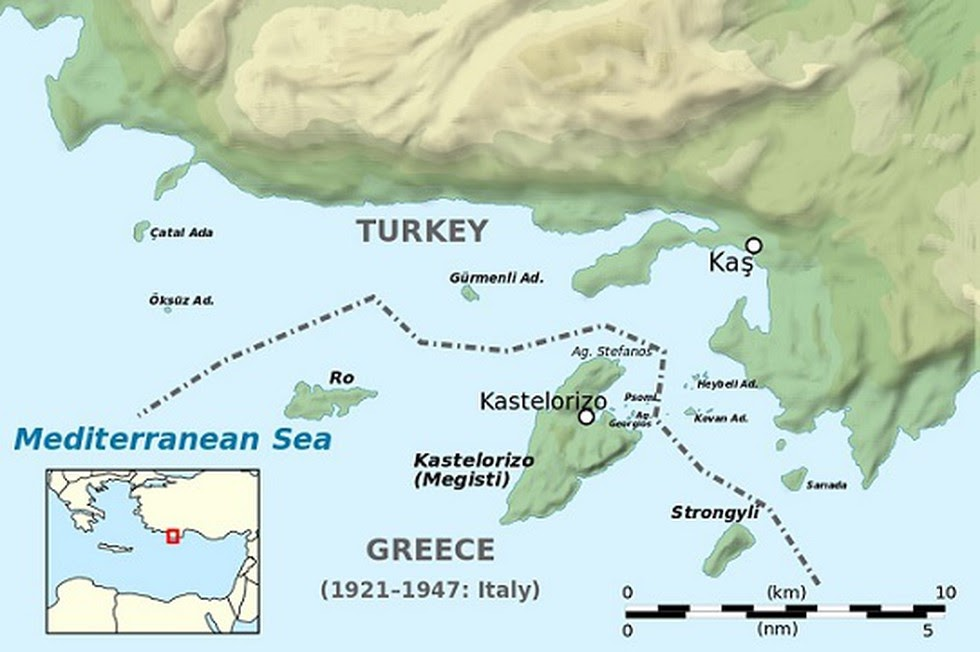
Opposition Phenomenon (Mars)
Part of: GS Prelims and GS-III – Space
In news
- Recently, Mars became the third brightest object (moon and Venus are first and second, respectively) outshining Jupiter in the night sky.
- This event is referred to as “opposition”.
- It takes place every two years and two months.
Important value additions
Opposition
- It is the event when the sun, Earth and an outer planet are lined up, with the Earth in the middle.
- The time of opposition is the point when the outer planet is typically also at its closest distance to the Earth for a given year.
- Since it is close, the planet appears brighter in the sky.
‘STARS’ Project approved
Part of: GS Prelims and GS-II – Education
In news
- The Union Cabinet has approved World Bank supported Strengthening Teaching-Learning and Results for States -STARS project recently.
Key takeaways
- The Project seeks to support States in developing, implementing and evaluating interventions with direct linkages to improved education outcomes.
- The total project cost is 5,718 crore rupees.
- World Bank shall provide assistance amounting to 500 million US dollars.
- It would be implemented as a new Centrally Sponsored Scheme under Department of School Education and Literacy
- It will cover six States, Himachal Pradesh, Rajasthan, Maharashtra, Madhya Pradesh, Kerala and Odisha.
Second phase of Thalassemia Bal Sewa Yojna launched
Part of: GS Prelims and GS-II – Health
In news
- The second phase of “Thalassemia Bal Sewa Yojna” was recently launched for the underprivileged Thalassemic patients.
Important value additions
Thalassemia Bal Sewa Yojna
- Launched in: 2017
- It is a Coal India CSR funded Hematopoietic Stem Cell Transplantation (HSCT) program.
- Aim: To provide a one-time cure opportunity for Haemoglobinopathies like Thalassaemia and Sickle Cell Disease for patients who have a matched family donor.
- The CSR initiative was targeted to provide financial assistance to a total of 200 patients by providing a package cost not exceeding Rs. 10 lakhs per HSCT.
Thalassemia
- Haemoglobinopathies, such as Thalassemia and sickle cell disease are inherited disorders of red blood cells.
- They are preventable.
- People with thalassaemia are not able to make enough haemoglobin due to which oxygen cannot get to all parts of the body.
- Due to this, organs are unable to function properly.
- There are two major types of thalassaemia, alpha and beta. These are named for the two protein chains that make up normal haemoglobin.
- In India, Thalassemia Major (TM) and the severe form of Thalassemia Intermedia (TI) constitute the major burden of disease.
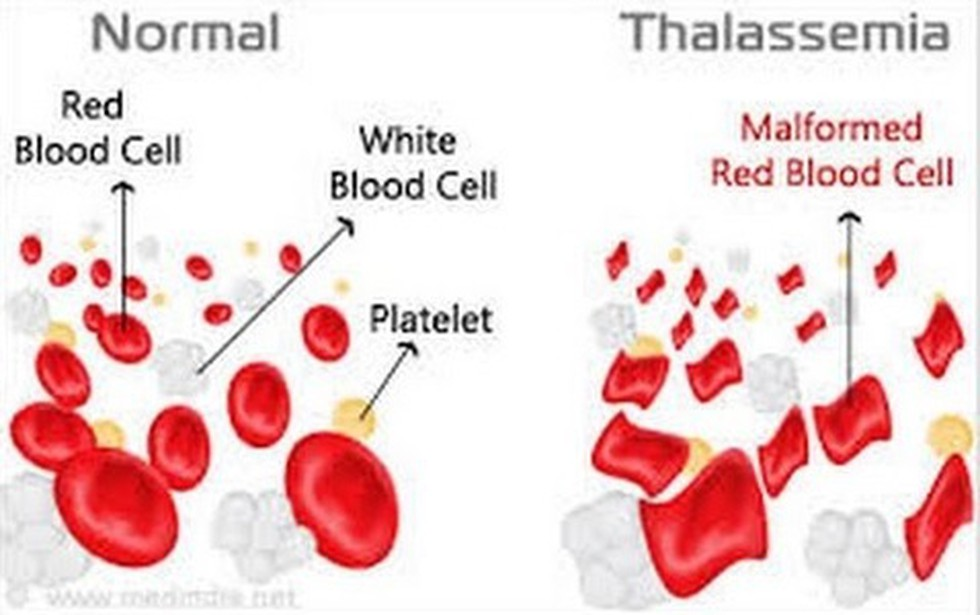
MACS-6478 wheat variety doubles farmers’ yield
Part of: GS Prelims and GS-III – Biotechnology
In news
- A new wheat variety MACS-6478 was recently in news.
- It has helped farmers in a village in Maharashtra to double their yield.
- Developed by: Scientists from Agharkar Research Institute, an autonomous institute of the Department of Science and Technology.
- The farmers are now getting a yield of 45 to 60 quintal per hectare with the new variety compared to earlier average yield ranging 25 to 30 quintal per hectare.
- It is also called high yielding Aestivum, matures in 110 days and is resistant to most races of leaf and stem rust.
The Third Assembly of International Solar Alliance (ISA) recently held
Part of: GS Prelims and GS-II – Global groupings
In news
- The Third Assembly of the International Solar Alliance was recently held.
- India has been re-elected as the President of the International Solar Alliance (ISA) and France as the Co-President for a term of two years.
Key takeaways
- The assembly also approved the initiatives of the ISA Secretariat in institutionalizing ISA’s engagement with the private and public corporate sector through the Coalition for Sustainable Climate Action (CSCA).
- Visvesvaraya award was also conferred. It recognizes the countries with maximum floating solar capacity in each of the four regions of ISA.
- The awards went to Japan for the Asia Pacific region and the Netherlands for Europe and Other region.
- For COVID-19, ISA set up ISA CARES. It is an initiative dedicated to deployment of solar energy in healthcare sector in LDC/SIDS ISA Member countries.
- The initiative aims to solarize one primary health sector in each district of the target Member countries.
Important value additions
- The ISA is an initiative that was launched by the Prime Minister of India and the President of France on 30 November 2015 at Paris, France on the side-lines of the COP-21.
- Vision: Promotion of solar energy for making solar energy a valuable source of affordable and reliable green and clean energy in member countries
- ISA Headquarter and interim Secretariat: Gurugram, India
Simultaneous blasting for Zojila Tunnel
Part of: GS Prelims and GS-I – Geography
In news
- Union Road Transport and Highways Minister will initiate simultaneous blasting for Zojila Tunnel in Jammu and Kashmir and Ladakh.
Key takeaways
- The tunnel will provide all-weather connectivity between Srinagar valley and Leh on NH-1 and will bring about an all-round economic and socio-cultural integration of Jammu and Kashmir.
- It involves construction of a 14.15-kilometre long tunnel at an altitude of about three thousand metres under Zojila pass on NH-1 connecting Srinagar and Leh through Dras and Kargil.
- Megha Engineering & Infrastructure Limited (MEIL) has been awarded with the contract of construction of ZojiLa Tunnel between Baltal and Minamarg within six years and nearly 19-KM approach roads on both sides in two and half years.
- Both on the east portal of ZojiLa Tunnel at Meenamarg on Kargil side in UT Ladakh and the west portal of Nilagrar tunnel in Ganderbal district of UT Jammu & Kashmir, tunnel works would begin with simultaneous blasts.
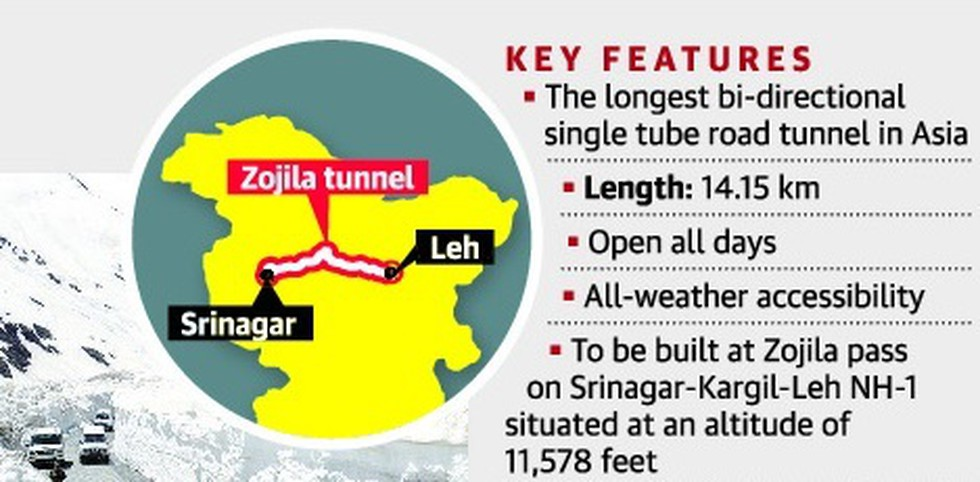
Miscellaneous
Operation Green
-
It is being implemented as part of Atmanirbhar Abhiyan.
- Ministry: Union Ministry of Food Processing.
- Under this scheme, 50% subsidy is given to the farmers for transporting the surplus produce of agricultural commodities like oranges and vegetables to the markets by rail.
- 50% subsidy is also given for cold chain storage of agricultural commodities.
- In order to get this subsidy, farmers have to attach self-certified documents online on ‘Sampada’ portal of the Ministry of Food Processing.
(MAINS FOCUS)
SOCIETY/ ETHICS
Topic: General Studies 1,4:
- Indian Society
- Ethics and Human Interface: Essence, determinants and consequences of Ethics in-human actions;
Sociological Analysis of Nepotism
Context: Sushant Singh Rajput Case and the issue of Nepotism in Bollywood
What is Nepotism?
- Nepotism is favoritism that is granted to relatives in various fields, including business, politics, entertainment, sports, religion and other activities.
- In simple words, Nepotism is favoritism based on kinship
- The term originated with the assignment of nephews to important positions by Catholic popes and bishops
Consequences of Nepotism
- Unfair Competition: Those with family connections don’t face the same level of competition as outsiders, exactly as domestic companies face much less competition when there are import barriers.
- Imposes Individual and wider social cost: Breaking in is much harder for an outsider and those who have the talent may never get the opportunity to showcase it. Therefore, there is a loss of potential output or value to society because of the resulting misallocation of talent.
- Inefficiency: There is comprehensive evidence that family firms are often beset by inefficiency, with bad management affecting the productivity of the entire organisation.
- Hinders Productivity: There are further indirect negative effects of nepotism on efficiency. If it is known that rewards depend on connections and not on effort and initiative, it would divert people’s efforts away from productive work to networking and lobbying.
Why aren’t there some corrective forces at work that would chip away at the inefficiencies of nepotism?
There are two main reasons why this may not happen.
First, there are often explicit barriers to competition.
- This barrier gives incumbent groups monopoly power and enables inefficient practices such as nepotism to flourish.
- Examples of such entry barriers include economic institutions such as
- Monopolies, syndicates and cartels;
- Social institutions such as the caste system and patriarchy;
- Policies that prevent the inflow of workers, goods and services from outside, such as anti-immigration laws and protectionism.
- Here, potential competitors are explicitly excluded and, therefore, insiders get undue advantage because of restricted competition
- Because of restricted competition, there is a loss to society from lack of access to the best technologies, products, skills and services.
- Challenges of Subjectivity
- Second, a less open and subtle channel of nepotism has to do with the fact that in certain domains, it is not easy to come up with an objective measure of quality.
- The ordinary consumer can separate the good from the bad and the marketplace would tend to weed out the bad.
- But for many professions, quality or performance is not that visible or cannot be readily and independently verified.
- In the case of research, for example, evaluation of quality is based on peer-review. By their very nature, these opinions are based on information and judgement that outsiders cannot hold up to scrutiny.
- Therefore, to the extent the opinions of experts, referrals, reputation, endorsements, and networks are necessary to certify quality in any field, they become a potential breeding ground for nepotism.
Way Forward
- Nepotism is just one of the symptoms of a much of broader issue — the lack of mobility.
- Mobility can be enhanced when people are made aware of such discrimination exiting in the society. Education with right set of values can help increase this awareness & thus strive towards curbing Nepotism
(TEST YOUR KNOWLEDGE)
Model questions: (You can now post your answers in comment section)
Note:
- Correct answers of today’s questions will be provided in next day’s DNA section. Kindly refer to it and update your answers.
- Comments Up-voted by IASbaba are also the “correct answers”.
Q.1 Consider the following statements regarding Strengthening Teaching-Learning and Results for States -STARS project:
- It will be supported by the WHO.
- It is a centrally sponsored scheme
Which of the above is or are correct?
- 1 only
- 2 only
- Both 1 and 2
- Neither 1 nor 2
Q.2 Consider the following statements regarding Thalassemia Bal Sewa Yojna:
- It is a centrally sponsored scheme.
- It provides one time cure for Thalassemia patients only,
Which of the above is or are correct?
- 1 only
- 2 only
- Both 1 and 2
- Neither 1 nor 2
Q.3 Hemoglobinopathies are inherited disorders of red blood cells. Which of the following are examples of such disorder?
- Thalassemia
- Sickle Cell disease
- AIDS
- Only a and b
ANSWERS FOR 14th October 2020 TEST YOUR KNOWLEDGE (TYK)
| 1 | A |
| 2 | D |
| 3 | A |
Must Read
About Elementary Education Chain:
About AP CM’s complaint against SC Judge:
About new Labour Codes:



